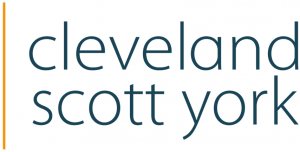So…what now?
This is a question that many people face upon graduating from university and for myself, it was no different. Although I thoroughly enjoyed my degree and found many of the projects I undertook interesting and engaging, towards the end of my studies, I couldn’t shake the feeling that specialising in one particular area of engineering was a little too restrictive.
On looking into potential graduate opportunities, I stumbled across an intriguing role stating: “Have you ever thought about becoming a patent attorney?”. I immediately began researching the profession and found that the core skills and abilities required to thrive as a patent attorney, along with the intrinsic day to day duties of the role, really resonated with me.
Coming from a family rooted in business, I have always had a keen eye on and interest in the workings of commercial enterprise; the premise of widening my scientific view by utilising my interests and technical abilities in a real world commercial setting really appealed to me. The patent profession promises to deliver an exciting career path by continually exposing you to a variety of innovative technology on the cutting edge; as someone who is passionate about science and technology, this was a major draw for me dedicating myself to pursue this career path.
How did you get a job with Cleveland Scott York?
I began by researching all the firms that were offering graduate positions in my field of expertise and made a list of the firms I believed I would be most suited to. High quality training and support during the qualification process, as well as compatible, company core values were the main things I was looking for. Consequently, I applied to all the firms that best reflected this criteria and Cleveland Scott York was amongst them.
The first stage of the application process involved a short telephone interview with one of the partners at the firm regarding my interests and motivations for wanting to join the profession. After passing this stage, I was invited to attend an assessment day with 5 other candidates in their London office and was asked to take a psychometric test prior to my arrival.
Upon arriving for the day, as you can imagine, I was a little nervous with what was in store but everyone I met at Cleveland Scott York were very friendly and relaxed which helped to settle my nerves. The day consisted of face to face interviews, written exercises, a group exercise and presentation which were aimed to assess my abilities to both critically analyse and to express my technical understanding and ideas in a clear and concise manner. It was an opportunity to get my personality across, but also, to get to know my potential future colleagues as well.
Looking back, it was a highly enjoyable experience; although the application process was rigorous, it made being offered the job all the more rewarding.
What will I be doing?
My day to day duties can vary but, generally, most of my work is concerned with the drafting and prosecuting of patent applications before an examining body. I work directly with partners and senior associates in my office which exposes me to a variety of patent related work across a wide range of technologies in my field of expertise.
Typically, the patent application process begins by meeting with inventors to understand their inventions and advise them on the best filing strategy moving forward. Then, using any provided notes and drawings, the patent application is drafted and filed. This is a core part of the job which involves strategically capturing the essence of an invention to achieve the broadest scope of protection possible for our clients.
Before the application can be granted, it is examined, mainly to see whether the proposed invention is novel and inventive over similar, existing technologies. At this stage, I put forward technical and legal arguments to counter any of the objections raised by the patent examiner and amendments may be made to help satisfy the examining body and put the application in order for grant.
As a trainee, there are commercial aspects to this work which you are continually encouraged to think about to allow you to develop your business acumen. During prosecution, it is important to maintain the broadest scope possible for your client whilst addressing and satisfying the objections raised by the examiner. This is one of the more challenging parts of the job but remains highly rewarding when you are able to successfully deliver for your client.
What skills do I need to succeed?
I rely on many of the skills I developed throughout my time at university to successfully carry out my daily tasks, however, the learning curve remains particularly steep when starting out and, at times, it can feel a little daunting, especially in your first few weeks.
An analytical mind is important as you will often have to go through various technical and legal documentation to pick out useful information to argue against the examiner. A strong foundation in your technical area of expertise is a must as you will need this to quickly get to grips with the new technologies you will be working on and to produce your strongest technical arguments to win over the examiner.
I would say the ability to communicate and express your technical ideas concisely and accurately is key in accurately capturing the mechanics of an invention. As this profession is deadline driven, you will need to be able to juggle and prioritise your own work load.
Any advice for getting into the industry?
Make sure to research each firm that suits you sufficiently so that you can tailor your CV and covering letter to really grab their attention. With the competition for places being fierce, there is no harm in applying for as many firms as possible to increase your chances.
With the road to qualification being challenging and requiring real commitment, make sure that this career path is definitely for you. This very career guide is a great resource to start with open days being a great way to gain some real insight into the day job and meet professionals in the industry.







